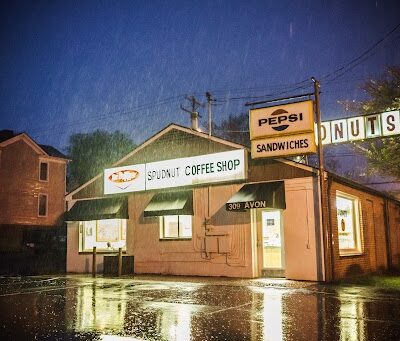We might be swimming in tomatoes, but Virginia-grown rice is consigned to the realm of the imagination. Kathryn Faulkner explains why certain foods just don’t come from here.
Dairy. As the milk industry grows more consolidated (Dean Foods now owns Shenandoah’s Pride), only a couple of local retailers sell dairy products straight from local farms: Homestead Creamery (milk, butter, cream) and Perfect Flavor (ice cream). In 2005, Virginia passed a law banning the sale of nonpasteurized dairy products, making it hard to get local raw milk (see page 23 for more). Low margins and high capital outlays make small-scale dairy production an expensive business.
 |
*Note: Regional and national brands like Shenandoah’s Pride and Horizon Organic try to reduce the distance their milk travels between the dairy and the consumer, so most milk tends to be semi-local.
Beef. Industry regulations tailored to big agribusiness, plus the time and land needed to raise cattle, make it difficult for local farmers to profit from small-scale enterprises. By law, retail beef must be inspected in a USDA slaughterhouse, so it usually travels a good distance even before processing. Buying stock in a local farm is one way to get beef straight from the farm.
*Note: Some organic/natural beef is marketed locally, but Virginia is a “feeder cattle state,” meaning that most cattle raised here are shipped out of state and grown to market size elsewhere before slaughter.
Artisan meats. Ham and bacon products are available, but some cured meat, such as salami, can be hard to find. Production of artisan meat is a relatively recent trend in the New World.
Seafood. “Local” seafood comes from the Chesapeake Bay and the Virginia and North Carolina coasts; native species include clams, oysters, striped bass, flounder, red grouper, snapper, and shrimp. Salmon, lobster, and scallops are shipped from more distant locales.
Beer. Brewers like Starr Hill and South Street usually have to use non-local ingredients (except water, which makes up over 90 percent of beer).
Hops. Grow mainly in the colder climate of the Northwest. Blue Mountain Brewery in Afton does grow a portion of its hops.
Grains. Rye and wheat grow here, but only a local mill like Wade’s or Byrd Mill can give us local flour. Barley and buckwheat grow in colder climates, and oats aren’t processed by either of the local mills.
Rice. An abundant and cheap supply of water is needed, so it’s produced domestically in places like Mississippi, Arkansas and California.
Coffee. Local roasters? Check. Local beans? Not so much. Coffee is a tropical plant.
Tea. U.S. tea production is miniscule. Most is grown in Asia.
Tofu. Though most locally available tofu comes from elsewhere, Twin Oaks produces theirs near here, with soybeans from Colonial Beach, Virginia. Sunergia Soyfoods is another local producer.
Tropical fruit. Avocados, oranges, mangos, and bananas need a tropical climate.
Olives. Mediterranean fruit produced domestically in California, Arizona and Texas.
Nuts. Walnuts and chestnuts grow locally; pecans and almonds thrive in milder
climates.
Celery. Difficult vegetable to grow because it needs rich soil and plenty of water. Produced domestically mainly in Florida and California.
Vegetable oil. Usually processed in a high-powered, large-scale chemical facility.
Chocolate. Local chocolate producers like Gearhart’s use cocoa beans grown in tropical climates.
Spices. Asian/tropical spices like cinnamon and pepper grow in harsh, hot climates.
Vanilla. Tropical vine/orchid grown mainly in Central and South America.
Salt. Virginia is not a state rich in salt flats (see Utah), but apparently one sea salt producer has recently come onto the state scene: La Provencale Cellars, Ltd. in Woodstock.
Sugar. Virginia’s climate makes sugar production impractical, but local growers sometimes substitute the sweet herb stevia. Primary sugar growers are in Louisiana, Alabama and Florida.
Packaged/Processed food. Virginia is home to a few household brand names (like White House), but many of its processors are local or regional outfits. In Charlottesville, there’s a shortage of community processing facilities to dry, can, juice, and package local food for year-round consumption, but the Mennonites do a pretty good job.





